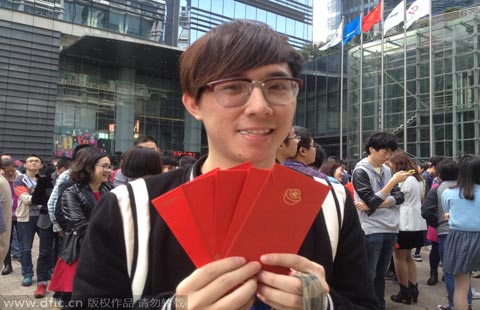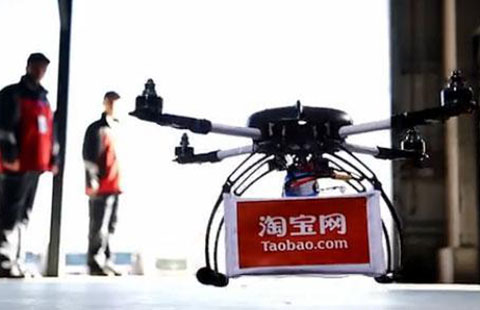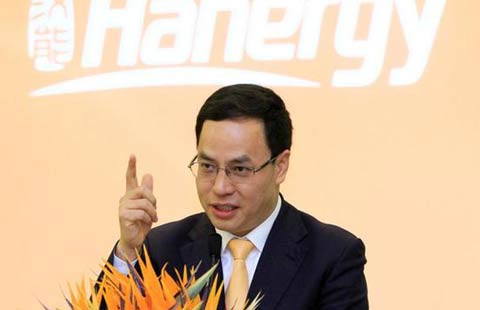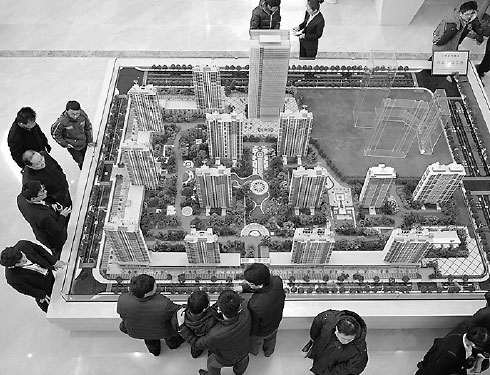VAT may not mean cheer to realtors
Updated: 2015-02-26 15:28
By Zheng Yangpeng(China Daily USA)
|
|||||||||
New system of taxation unlikely to ease burden, according to PwC expert
Replacing business tax with value-added tax may not exactly ease the tax burden of Chinese real estate companies, said a taxation expert from global consultancy firm PricewaterhouseCoopers.
China started a pilot program to replace business tax with VAT in early 2012 and so far the reform has expanded to many industries with some exceptions like real estate, finance and consumer services. The aim of the reform is to introduce the internationally prevalent VAT and reduce the tax burden for enterprises.
There is no "credit mechanism" for the existing business tax, and all costs have to be absorbed by the business. The VAT, on the other hand, only taxes the "value added" at each stage of the supply chain, which generally allows businesses to credit any VAT incurred on business costs. However, the VAT rate is generally higher than the business tax, and it really takes a while to figure out how much the companies pay more or pay less eventually.
Alan Wu, PwC China national indirect tax leader, said the tax reforms for the real estate and construction industry are most likely to be announced in the first quarter of this year. Though indications are that the new policy would be implemented from the third quarter, experts said in all probability the implementation would not be later than the end of this year.
Wu said that most of PwC's real estate and construction clients are apprehensive that the switchover to the VAT system would lead to more tax payments.
In theory this would not happen, he said. The rate for VAT, very likely to be 11 percent universally, is higher than the 5 percent business tax applied in the real estate industry. But developers and construction companies could use invoices of input tax items, such as labor cost and material cost, for deductions. Once this is done, the base for taxation would be greatly reduced.
However, in practice developers and construction companies could find it hard to get many of the items for deduction. A major problem is the cost of acquiring land, something that accounts for bulk of the costs in China. Wu believes that the government will not allow the cost of the land to be used for deductions, because under the current practice companies do not pay any business tax or VAT for the land they purchase.
Such consequences are significant, especially if land costs cannot be deducted. For example, assuming land price accounts for 40 percent of the total cost, and that price does not get a deduction, the tax rate for companies would rise from the current 5 percent to 7.04 percent. If land cost gets deduction, even if one were to apply a 12 percent VAT, the tax rate would decline from 5 percent to 4.4 percent.
Companies fear a number of other costs will also not get deductions. For example, in China construction companies cannot give their clients and developers invoice of construction workers' payment as many of them are informally employed. Companies also usually cannot get invoices for construction materials because most of their suppliers are small vendors.
Another troublesome issue is Chinese developers' dominant sale model, in which houses are sold before they are completed. Under the "pre-sale" model, as people call it, output tax items, or tax on sales, are levied at the beginning of the construction. So the ensuing construction fees cannot be used to get deductions. But if houses are sold after they are completed, massive input tax items get deductions in a long time span. If the completed properties are for lease, it takes even longer to get the deductions.
All these practical issues would plague companies in the industry, Wu said. Companies could maintain their sale price and compromise their profit margins, or in some cases, transfer the increased tax to consumers, which means higher housing prices.
"The change in how taxes are levied could shift a range of corporate strategies, including how they deal with their supply chain and their sales models. The earlier they make preparations the better," Wu said.
zhengyangpeng@chinadaily.com.cn
|
A property sales site in Rizhao, Shandong province. The tax reforms for the real estate and construction industry are mos likely to be announced in the first quarter of this year. Zhang Lei / For China Daily |

(China Daily USA 02/26/2015 page15)

 Chengdu citizens visit Du Fu Thatched Cottage to mark Human Day
Chengdu citizens visit Du Fu Thatched Cottage to mark Human Day
 Tencent gifts red envelopes to employees
Tencent gifts red envelopes to employees Throwing coins to please God of Wealth
Throwing coins to please God of Wealth
 7 companies that aim to fly high with drone deliveries
7 companies that aim to fly high with drone deliveries
 Starry Night created by lens
Starry Night created by lens
 Dragons, martial arts and basketball
Dragons, martial arts and basketball
 Stringing in the New Year
Stringing in the New Year
 Top 10 Chinese innovators in 2014
Top 10 Chinese innovators in 2014
Most Viewed
Editor's Picks

|

|

|

|

|

|
Today's Top News
Obama blames immigration woes on Republicans
New fighter jet ready for PLA
Why China's youth is getting the needle
Most Chinese forced to return home were living abroad illegally
US State Dept calls for cyber security boost
Anbang buys new piece of Manhattan
California here we come: Chinese
Port dispute over, shelves take time to restock
US Weekly

|

|









